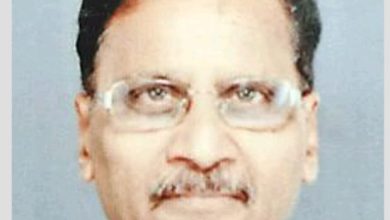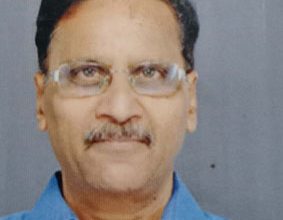Rebellion Never Succeeded in BJP

Dr. Duggaraju Srinivasa Rao
Karnataka election scene, where some of the top BJP leaders defecting to the Congress or JDS is much talked subject in politics. How far these rebellious defections will impact on the winning prospects of BJP is any ones guess. Congress believe that with the two prominent BJP leaders, one former CM and the other a former deputy CM, both belonging to a prominent community will boost the number of winning seats to near 150 in 224 Assembly strength. The pro-Congress media is already drafting the obituary for BJP in Karnataka, even before the first vote is caste. On the other hand, the union Home Minister and prime strategist of BJP, Amit Shah is talking of his party not only retaining the Karnataka but also capturing the Telangana, the state elections are due in next five months. Each party will run their own narratives to boost their cadre but the truth is somewhere between the parties narrative and the actual results.
The confidence of BJP stems from the failure of rebellion in their party. Rebellion is not new for any party and BJP is no exception. But the difference is that who defected to BJP from the Congress gained in position and stature where as those who left BJP and moved to Congress lost their sheen and faded away in politics. Starting from the Jan Sangh day, the rebellious leaders who defied the highly centralized party establishment lost their cause as the disciplined party cadre never moved out of the party and supported them in their rebellious issue. Balraj Madhok, the tallest leader of Jan Sangh, under whose presidency the party won highest number of seats in 1967 elections became insignificant figure in politics on differing with Vajpayee and Advani combination. His attempt to revive the Jan Sangh also failed. Similr fate was met by many BJP rebel leaders in different states.
In 1980s the Karnataka witnessed another rebellion in BJP through a highly vocal leader A.K. Subbaiah. His difference is similar to that of Balraj Madhok- the line party should take to grow and influence the voters. Here also Subbaih’s line of thought was rejected by Vajpayee and Subbaiah of Karnataka turned a bitter critic of BJP. His acerbic tongue came in handy to Congress party as he joined that party but not for his personal elevation in politics. Thus rebellious A.K. Subbaiah faded.
The rebellion in BJP by Sankarsingh Vaghela has changed the course of poltical history in the country. His rebellion was one of the factors which made the party to depute Narendra Modi, a RSS pracharak, to head Gujarat government. After that what Modi did to the party is now part of successful BJP growth story. Vaghela, a prominent RSS and BJP man in his desperation joined the ideological enemy, Congress and became a union minister. But beyond that Vaghela never tasted success. He couldn’t wean away the BJP workers to his rebellious cause.
Late nineties saw another failed rebellion in BJP camp in Karnataka where B.B. Shivappa, peeved over the denial of position of Leader of the opposition exhibited his dissatisfaction violently and moved into Congress. But he lost the next election on Congress ticket and then moved into political oblivion. B.S. Yediyurappa, the tallest leader of BJP in Karnataka, who is now striving hard for the victory of party in May election was also once a unsuccessful rebellion in BJP. Following the corruption charges, his arrest Yediyurappa was asked to step down from the CM chair. Yediyurappa turned rebellious, resigned from the BJP floated his own party, Karnataka Janata Paksha (KJP) but couldn’t succeed in his rebellious effort and in two years’ time re-joined BJP.
Same was the fate of Uma Bharati and other Madhya Pradesh leaders. During the Telangana statehood demand movement, A. Narendra, whom the BJP cadre adored as Tiger Nirendra, resigned from the party and joined the then TRS. Once he moved out the Tiger Narendra failed to roar and enthuse the supporters. Not many BJP cadre went away with him. There are some women leaders such as Uma Bharati of Madhya Pradesh, Vijaya Santi, national best actress award winner who rebelled against BJP and then returned to the party as they realized that without party backing they are no body in politics. In Delhi, UP, Rajasthan and in many states the fate of rebels is no different.
Thus the rebels were never considered by BJP as a threat and largely ignored the moves of such rebellious leaders after failed placation. Despite knowing the failed rebellions in the party some of the BJP leaders chose to resign from the party and embrace the Congress. The problem with such leaders is their ignorance of the core structure and function of a cadre based party like BJP, despite their long association with the BJP. It is a party of ideologically indoctrinated workers. In the structural design of BJP the lowest level worker plays an important role in the spread of ideology, the party and government’s new initiatives and the voter feedback provider. It is this worker on the polling day does the booth committees job.
This cadre based party structure build since beginning is strengthened after Narendra Modi took over the reins of the government in Delhi. He started directly addressing the party workers, which includes the latest interactive speech on the 44th foundation day of the party. Modi made every member of BJP a proud participant in the nation building. He called “every party worker as the representative of the dream of the country, the resolve of the country”. It is this kind of young workers of BJP who immediately gets disassociated with the rebellious BJP leaders. Thus, those rebelled and defectors from BJP becomes loners in the political arena, as they lose the committed cadres support. Because of this, the rebellion in BJP was never successful and rebel leaders fade away soon after their rebellion. May be because of this past history of rebellions in BJP, the Home Minister Amit Shah is talking confidently of his party’s victory in the coming elections.
(The opinions expressed in the Article are solely those of the author and not necessarily representative of the views or opinions of the Central Chronicle.)






